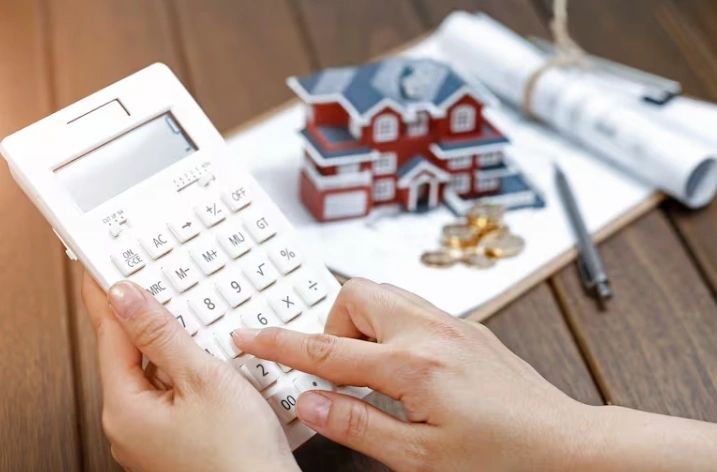BuySellBA
Administrator
Don't qualify for a mortgage? You can still buy a property - La Nacion Propiedades

Source:
¿No calificás para un crédito hipotecario? Igual podés comprarte una propiedad
Las respuestas a 15 preguntas clave sobre el leasing inmobiliario y por qué es una buena opción para acceder a la casa propia
May 05, 2025
Answers to 15 key questions about real estate leasing and why it's a good option for accessing your own home
By Enrique Abatti

A couple signs a leasing contract to access a home with the possibility of future purchase.Shutterstock
Real estate leasing is basically the rental of a property owned by the lessor (called the lessor ) over which he has the power to lease , with an irrevocable purchase option by the lessee (called the lessee ).
This tool can also cover a financial transaction involving a third party financier, whether private or banking, and can also be used in the securitization process of leasing contracts .
Originally, leasing was born as a financial business , so in addition to the parties involved—the lender and the borrower—a third party, such as a credit institution, was also involved. Even the previous legislation established that only financial institutions or companies whose sole purpose was to carry out leasing transactions could be lenders , excluding individuals.
Current legislation now allows any natural person or legal entity (company) to act as a lessor. This significantly expands the range of business possibilities, especially in real estate. This means that anyone can enter into a leasing transaction .

Real estate leasing allows you to purchase a property with greater flexibility than a mortgage loan.CrizzyStudio - Shutterstock
To start, it is important to understand that the leasing contract may include movable and immovable property, trademarks, patents or industrial models, and software. However, in this case, we will refer exclusively to real estate leasing , as an advantageous and flexible way to access homes, offices, commercial premises, warehouses, storage facilities, and industrial plants.
But why do we say that a leasing contract is much more advantageous than a rental contract, and it's also a solution for those who don't have access to tools like mortgage-backed financing?
The first point to keep in mind is that it's very difficult to meet bank requirements for mortgage-backed loans. Generally, out of every 100 applications, between 10 and 15 are approved, primarily because most applicants, especially those with self-employed income , earn part of their income outside the formal system. However, many of them can qualify for a leasing contract , as they only need to qualify as tenants.
1-How does it work?
To put it simply, it's two contracts in one: the rental agreement with the irrevocable option to sell, since the owner (the lender) is always obligated to sell.If the rental is done through a lease with an irrevocable purchase option in favor of the tenant , all monthly rental payments will be credited to them as part of the purchase price. This is the huge advantage of leasing over a mortgage purchase.
2-What is the support?
It is a contract executed through a public deed that is recorded in the Real Estate Registry.3-What is the legal framework?
Current legislation provides for advantageous tax treatment of leasing, such as the possibility of paying VAT as the fees (the lease installment, i.e., the rent plus the financial portion) are paid or accrued. With this system, 100% VAT will no longer be required at the time of purchase or the start of the contractual relationship. In other words, VAT is paid with the installments.Furthermore, for accounting purposes, rent is an expense for the lessee (tenant), who disposes of the use and enjoyment of a capital asset without incorporating it into his or her assets. This is unlike acquisition, where the owner must pay tax on the purchase price.

The real estate leasing contract must be executed by public deed and registered in the Real Estate Registry.FreePik
5-How is a leasing contract made?
The development of this contract has two distinct stages. The first is the lease, and the second is the purchase and sale, in the event that the borrower exercises the purchase option.At the leasing stage, the role of the lessor (owner) is similar to that of the lessor, who is the owner of the property or, failing that, has the power to lease it in accordance with the cases provided for by law.
In the case of real estate leasing, the Civil and Commercial Code establishes that during the rental phase, the specific rules on leasing and the terms agreed in the contract apply first. For any unforeseen circumstances, the rental rules apply subsidiarily, and if the borrower chooses to exercise the purchase option. The specific leasing regulations and the terms agreed in the contract apply first, and finally, the provisions on the real estate sale.
That is to say, first, the rules of rental legislation apply, and then the provisions established by the parties in the leasing contract according to the Civil and Commercial Code.
6-How do I register?
The law stipulates that the real estate leasing contract must be granted in a public deed and must be registered with the Real Estate Registry of the property's location.7-What does the policyholder pay every month?
The periodic rent or fee—usually monthly—that the borrower, like a tenant, must pay is composed of a rental value and a component of the financial cost of the capital, represented by the market value of the property, less an amortization for depreciation due to obsolescence (common in industrial plants), which will vary according to the type of property in question.Thus, furniture, such as computer equipment, will have a rapid depreciation and in the case of real estate, the decrease in the value of the building will depend on the destination, since a construction destined for housing will not be the same as one for a high-tech industrial plant, where the obsolescence will occur in a much shorter period (in some cases less than 10 years) and in the case of offices, commercial premises and homes, there could even be an increase in values.
8-Who pays the ordinary and extraordinary expenses of maintenance and use of the property?
All ordinary and extraordinary maintenance expenses, including insurance, taxes and fees, are the responsibility of the policyholder (tenant), unless otherwise agreed.9-Can the policyholder lease the property that is the subject of the lease?
Indeed, the lessee is legally authorized to lease the property, unless otherwise agreed, as is the case in lease agreements. The right to lease the property gives the lessee an additional advantage, as they can use the rent they receive to pay part of the fees.
Leasing offers greater legal security for the lessor in case of non-compliance, reducing eviction periods.Sora Shimazaki / Pexels
10- Can the contract be assigned?
Since specific legislation does not prohibit it, the general principle is that it can, but contracts typically stipulate that the transfer of the contractual position is prohibited for the borrower, not the giver.11- How is the price of the good defined?
There are two systems: either setting the value at the outset, i.e., when the contract is signed, or setting it at the time the purchase option is exercised, as determined in the contract, for example, by the average of appraisals from three real estate agencies. In both cases, the accumulated amounts are deducted from the fees paid. In countries with very stable economies and no history of "real estate bubbles," the purchase option price is set at the outset of the contract.
Residential buildings can be an increasingly used option for the development of real estate leasing contracts.Fabian Marelli - University Rental
12- When does the buying and selling stage begin?
After two-thirds of the total fees have been paid, or before, if so agreed in the contract, the borrower may exercise the option to purchase the property, which will constitute an irrevocable obligation to sell on the part of the lessor. The option price or residual value, which generally represents 25% of the property's value at the beginning of the contract, can be paid—as agreed—in cash or in installments, with or without a mortgage guarantee, since ownership will be transferred to the borrower.13- What are the advantages of leasing?
One option is undoubtedly express eviction due to non-payment. In the event of non-payment of rent, eviction proceeds within a very short period (five, sixty, or ninety days, depending on the case), while in a rental agreement it can take no less than 18 months. For this reason, this type of contract is more advantageous for the landlord than one with a mortgage. In fact, it is the contract with the lowest rate of non-payment. Although it should be clear that a stable macroeconomic context in Argentina with low inflation is key. Regarding the advantages over a mortgage: it offers greater legal security than a mortgage, since ownership of the property remains registered in the Real Estate Registry in the name of the lessor or landlord until the lessee or tenant exercises the purchase option. If the landlord defaults before then, the rent paid remains with the lessor and the lessee loses it.14- What happens if the donor goes bankrupt or insolvency proceedings occur?
In the event of bankruptcy or insolvency of the owner-lessor, the contract will continue for the agreed term and the lessee may exercise the purchase option within the time provided by law or the contract.15- What is the
This occurs when someone needs money and goes to a creditor. The owner can sell the property as collateral, becoming the borrower or lessee (lease tenant). The lessee can recover it by exercising the irrevocable purchase option, provided the rent is paid on time.For the creditor, who becomes the buyer and then the lender, this methodology is extremely advantageous in relation to the mortgage, because in the latter, the encumbered property remains in the name of the debtor and if the latter fails to comply with the payments, a foreclosure proceeding must be initiated, subject to the vicissitudes of demagogic political decisions, such as the one that ordered the suspension of foreclosures. In contrast, in the sale and leaseback , the property becomes the property of the creditor, who then gives the debtor the possibility of recovering it through leasing. As we can see, this contract is extremely convenient for the parties because it enables the development of businesses within a framework of legal security that surpasses a simple lease or sale with mortgage guarantee, given that it contains procedural rules that significantly shorten the time periods for the lender to recover the property and the investment in the event of default by the borrower.

Real estate leasing offers advantages over mortgages, providing greater legal security and easier access to property.
In the event of the landlord's bankruptcy or insolvency, the tenant's rights are protected by the registration of the contract in the Real Estate Registry. All rent paid will be credited to the purchase price if the tenant exercises the purchase option. This would not be the case with a simple "lease agreement with purchase option," as the tenant would lose the rent paid. This is why this is one of the contracts with virtually no breaches by the tenant, as the tenant would lose all accrued rent, which would later be used as a deposit against the purchase price if the tenant opts to purchase the property.
With this innovative legal concept, numerous real estate deals are on the horizon, provided you have adequate information and the right professional advice.
* The author is a lawyer specializing in real estate law, head of the Abatti & Rocca law firm, and president of the Chamber of Property Owners of the Argentine Republic.
www.buysellba.com

